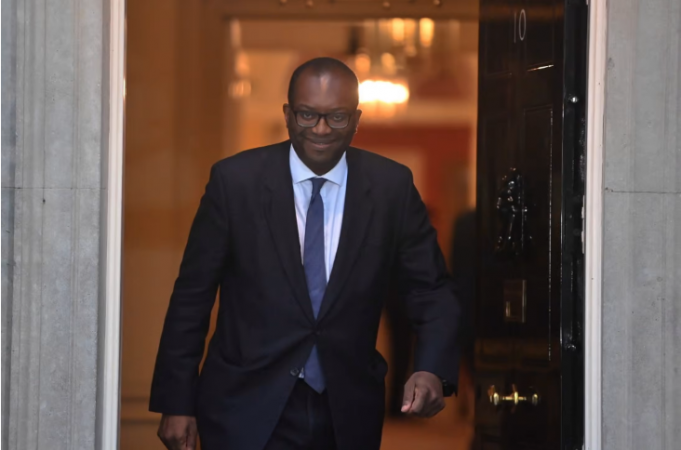
UK: For the first time, one of the country's four most important ministerial posts will not be held by a white man in the cabinet of new British Prime Minister Liz Truss.
James Cleverley is the country's first black foreign minister, and Truss appointed Kwasi Quarteng, whose parents immigrated to the UK from Ghana in the 1960s, as the country's first black finance minister.
Cleverly, a mixed-race kid who was bullied and whose father is white and whose mother is from Sierra Leone, has previously said the party needs to do more to win over black voters.
Suella Braverman will replace Priti Patel as the second ethnic minority home secretary, or interior minister, where she will be in charge of police and immigration. His parents immigrated to Britain from Kenya and Mauritius sixty years ago.
The recent push by the Conservative Party to nominate more diverse candidates to parliament has contributed to the growing diversity.
Until a few decades ago, the British government was dominated by white people. The appointment of Paul Boateng as Chief Secretary to the Treasury was the first ethnic minority cabinet minister in UK history, which did not take place until 2002.
Quarteng's predecessor in the finance position was Rishi Sunak, an Indian-origin man who finished second only to Truss in the leadership category.
The pace was set by politics. “We now think of it as normal, this diversity,” said Sundar Katwala, director of British Future, a nonpartisan think tank that focuses on immigration and identity. “Change is happening at an extraordinary pace.”
The upper echelons of the military, civil service and business are still largely made up of white men. Furthermore, despite the party's diversity campaign, only 25% of Conservative MPs are women and 6% come from under-represented groups.
Nevertheless, among the major political parties, the Conservatives have the best record of political firsts, including the appointment of Benjamin Disraeli as the first Jewish prime minister in 1868.
This is the case, despite the fact that voters who identify as members of ethnic minorities are more likely to support the opposition Labor Party and the ruling party has been accused of racism, misogyny and Islamophobia.
In 2019, former Prime Minister Boris Johnson issued an apology for comparing burqa-wearing Muslim women to letter boxes.
Britain's three female prime ministers—Margaret Thatcher, Theresa May, and now Truss—were elected by the Conservative Party. Mancharji Bhaunagri was the first legislator of Asian origin to represent the Conservative Party in 1895.
When Johnson was elected prime minister in 2019, he put together the youngest and most ethnically diverse cabinet in history. Of his three finance ministers, two were from South Asia, and the third was Kurdish.
Former leader and Prime Minister David Cameron worked on the changes for years.
He set out to ensure that his party more closely resembled modern Britain, which was expected to lead as there were only two ethnic minority members of parliament in 196 when he took over the party in 2005.
The following year, Cameron unveiled a priority list of candidates, many of whom were minorities and women running for secure seats in the House of Commons. This push was beneficial for the truss.
When Cameron announced the changes, James Arbuthnot, a member of the party's board's committee on candidates, said, "An important part of ensuring the strength and resilience of any group, including a political party, is everyone's thinking and thinking. act is to be avoided. Similarly - to refrain from group thought."
However, Quarteng has underestimated the importance of his ethnicity. Although he was subjected to racist abuse as a child in the 1980s, he has stated that he represents himself as none other than his constituents in Spelthorne, bordering London's south-west suburbs. lets see.
The first black Conservative front-bench minister said after his appointment, "I really think it's not such a big deal. Having made my point, I can't believe it will be brought up in me, as many times." Will be brought.
Liz Truss wins race to be next U.K. leader, by succeeding scandal-hit Boris Johnson
Liz Truss PM of United Kingdom will have to appoint a cabinet of sympathisers
Liz Truss a candidate of Britain's PM promises to take immediate action on energy